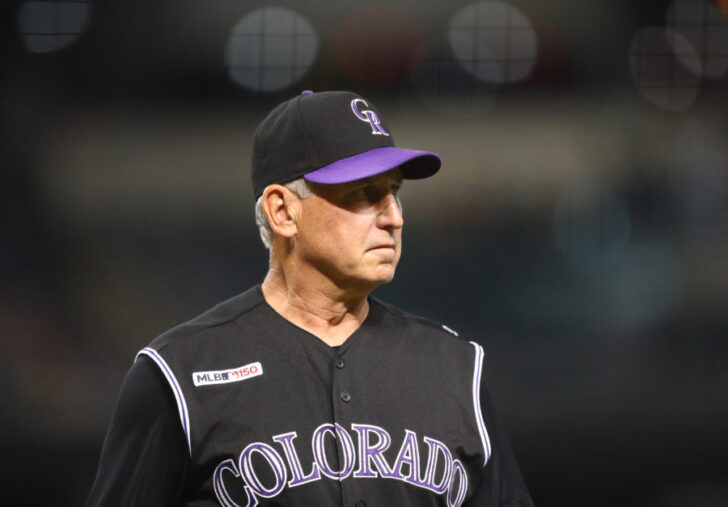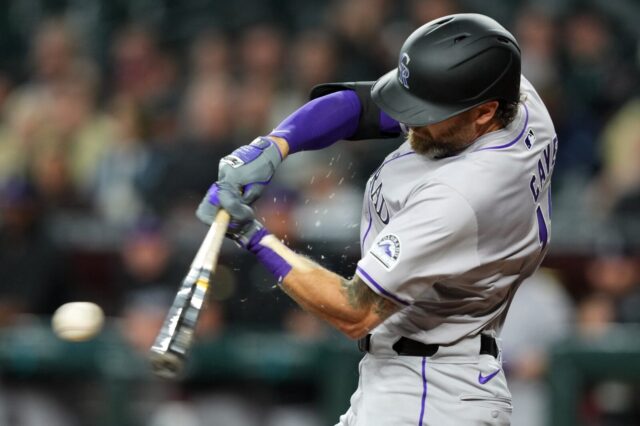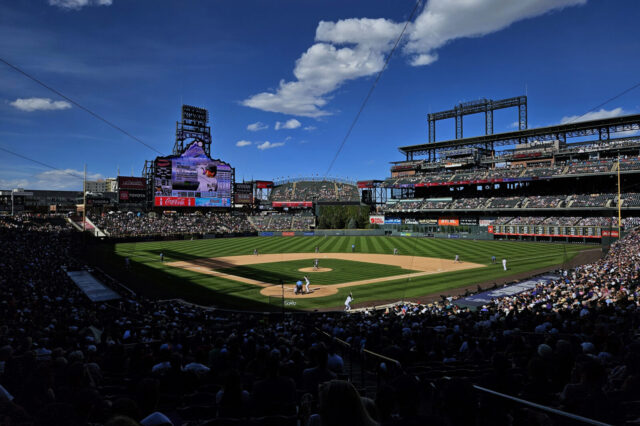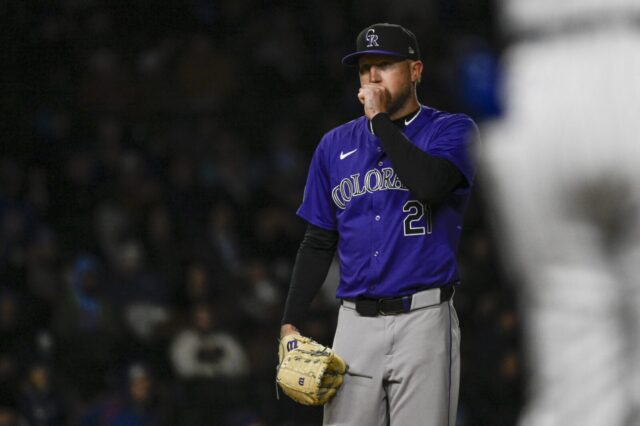The Reds got Trevor Bauer. The Astros picked up Zack Greinke. Even the Mets acquired Marcus Stroman despite their standing as a below-average contender.
For the Colorado Rockies, they received no one. That is, no one that will make a difference.
All of the what-ifs, could-haves and should-haves are out the window. With the newly instated, singular trade deadline, the big deals are over.
That’s not to say that there weren’t deals to be made. The aforementioned Stroman could’ve been had. Several other starters like Robbie Ray, Mike Minor and even Bauer were on the market.
Instead, a franchise-worst, 6-19 month of July, seeled the Rockies’ fate. Unlike previous years where they sought pieces like Pat Neshek and Seunghwan Oh to fill smaller voids, the club’s hole was too monumental.
“This season, to this point, has been very much a roller coaster,” General Manager Jeff Bridich said. “This past month has been very challenging and it’s been tough baseball to watch.”
The rotation – ranked last in the National League with a 5.67 earned run average – was in need of several starters. One wouldn’t do.
Kyle Freeland has taken a monumental step back from his 2.85 ERA and fourth-place Cy Young finish last year. German Marquez has regressed from a 2.61 second-half ERA to a bloated 4.68 mark in 2019 – regressions that a rebound year from Jon Gray can’t fix.
Peter Lambert, Jeff Hoffman, Chi Chi Gonzalez, Chad Bettis and Tyler Anderson couldn’t solve it either. Expecting a big deal for a top-flight starter was expecting the club to make an upgrade that would’ve failed to solve a problem while also giving up top prospects.
Giving up major league talent to acquire an underperforming prospect with upside – sorry, Padres – also wouldn’t have helped.
The only real solution for the Rockies – if they wanted to compete this year – was to sell the farm, literally and figuratively. That same farm system, previously loaded with a glut of major league talent, has since taken a hit.
There is seldom an evaluating site or group that has ranked the Rockies’ system anywhere near the top of the league. The club’s main trade pieces – whether they were available or not – were the likes of Garrett Hampson, an injured Brendan Rodgers and one of their two recent top pitching picks in Riley Pint or Ryan Rolison.
When compared to the sizable package the Astros gave up to add Greinke, the Rockies were simply unable to compete. Even the Franmil Reyes and prospect-laden package the Indians received for Bauer would’ve been too rich.
Not to mention, the Rockies’ holes likely would’ve required both pitchers – and more – just to make a postseason run that would’ve made the moves worthwhile.
The interest was there, but it was for the players needed to compete. In the several days leading up to the deadline, the Rockies’ front office was bombarded.
“We could’ve traded a large portion of our team if we wanted to,” Bridich said. “Such is the typical deadline.”
Rumors included Charlie Blackmon being discussed, Wade Davis being shipped out and even Bryan Shaw garnering interest during the final stretch before the deadline.
The pair of latter names, including Jake McGee, all would’ve been quality trade candidates. Though they wouldn’t have brought a sizable haul, the Rockies could’ve taken advantage of a market that was thin of relievers to shed salary.
Instead, they will go into next season with a payroll over $124 million, without including their full roster.
Trevor Story, David Dahl, Jon Gray, Kyle Freeland and Scott Oberg are all set to enter their arbitration years, as well as lesser names like Carlos Estevez. The club’s payroll will likely top their 2019 mark of $154 million without even adding an additional player. Free agency will likely be quiet once again.
In Davis, Shaw and McGee, Bridich and company could’ve shaved $36 million off their obligations for next year. The aforementioned returns would’ve been minimal if an opposing team had to take on the full contracts, but the money was more important.
Finding a suitor for Ian Desmond amongst his hot streak or giving up on the Daniel Murphy experiment would’ve netted over $20 million in additional space.
The decision to keep the club intact was one that won’t benefit the club in 2019, though no sensible moves could’ve truly made a difference.
Fixing the Rockies for the future is going to be a rigorous endeavor. Allowing moments to simply slip away that could’ve improved that outlook isn’t a recipe for disaster. It’s not a recipe at all.



